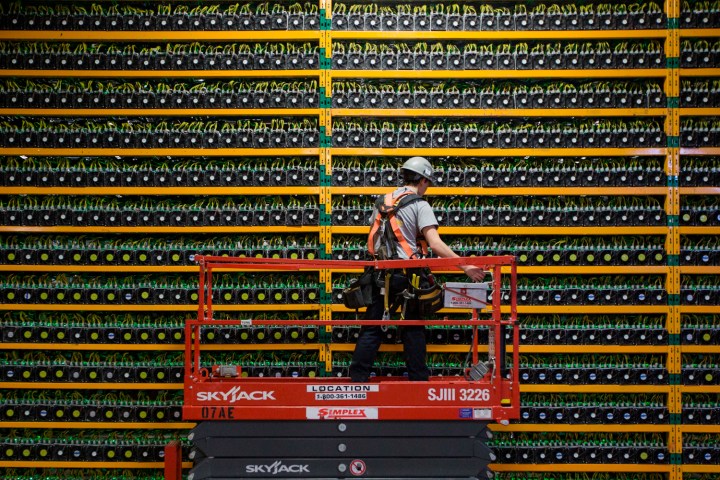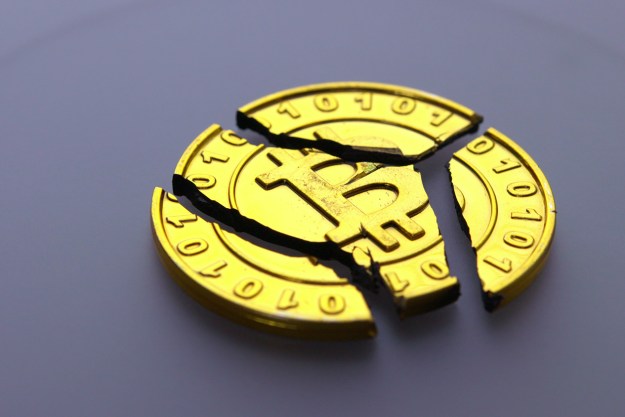
Bitcoin mining isn’t anywhere near the money-making machine it was just over a year ago, but thanks to some larger players bowing out as profits fell, they have now begun to rise once again. Gross margins — the difference between earnings and the total cost of investment — rose to 39 percent in February, the first time it’s risen at all in well over a year.
It’s been a long time since mining Bitcoin yourself was a simple and profitable venture (although there are ways to do it). While the early days of the cryptocurrency saw people mine hundreds or thousands of Bitcoin with home computers, today if you aren’t investing hundreds of thousands in the latest hardware and have a plentiful supply of cheap electricity, you’re going nowhere fast. As The Next Web suggests, the adoption of new, more efficient technology is likely to be the driving force of Bitcoin’s mining resurgence, by forcing out older, less efficient hardware, as well as a relative stabilizing of the value of individual Bitcoins.
Despite Bitcoin’s value peaking in December 2017 (and falling dramatically since then) the hash rate, or the amount of computing power that’s attempting to mine the cryptocurrency, has risen more than threefold since. As profits from mining Bitcoin fell to low double digits in late 2018, the hash rate did fall by around a third. Over the past couple of months, however, it has begun to grow once again and mining profits for those still in the game have risen in kind, increasing seven percent throughout February.
This doesn’t guarantee that Bitcoin’s value won’t fluctuate massively in the weeks or months to come, as cryptocurrencies tend to do. But miner confidence appears to have returned in force, with the hash rate rising by more than 20 percent since the start of the year.
Even if Bitcoin’s value is far from certain, it is performing fantastically as a transactional currency. After a big drop off in early 2018, Bitcoin trades have only increased, reaching more than 350,000 transactions a day in early March.
Still wondering how “mining” relates to cryptocurrencies like Bitcoin? Our guide to Bitcoin mining has you covered.
Editors' Recommendations
- Don’t download the latest macOS Ventura update just yet
- GPUs are cheap right now, but don’t be tempted just yet
- Don’t waste your money on a MacBook Air. Just buy a Chromebook instead
- How to mine Bitcoin
- How to buy Bitcoin with PayPal




